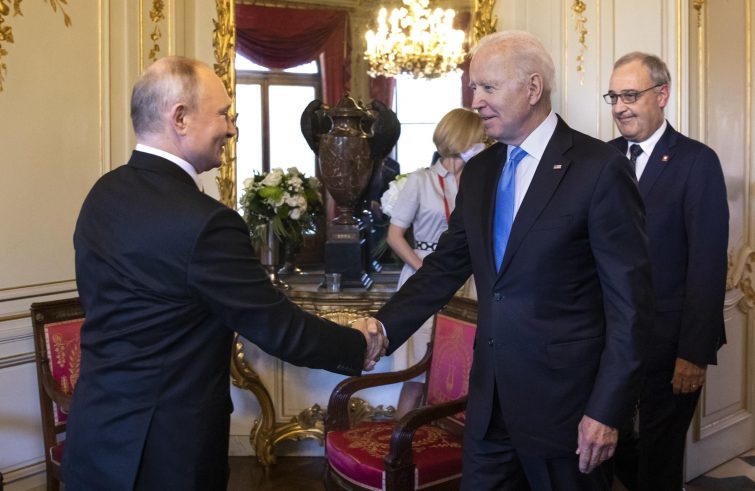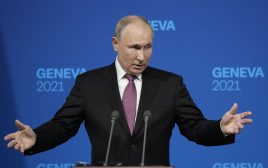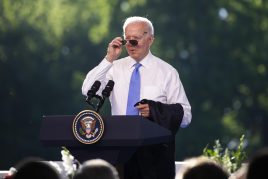
 “There has been no hostility. We disagree on many issues, but our meeting took place in a constructive spirit”. With these words, Vladimir Putin described to journalists the atmosphere of the talks with US President Joe Biden yesterday afternoon in Geneva. One tangible result was that “U.S. and Russia will return their ambassadors to their posts.” During the 53-minute press conference Mr. Putin also stated that, on the subject of Ukraine, “the Minsk agreements should be the basis for a settlement”, and as for cyber security, “we have agreed to start consultations on this issue, as on that of strategic stability, arms control and the exchange of prisoners.”
“There has been no hostility. We disagree on many issues, but our meeting took place in a constructive spirit”. With these words, Vladimir Putin described to journalists the atmosphere of the talks with US President Joe Biden yesterday afternoon in Geneva. One tangible result was that “U.S. and Russia will return their ambassadors to their posts.” During the 53-minute press conference Mr. Putin also stated that, on the subject of Ukraine, “the Minsk agreements should be the basis for a settlement”, and as for cyber security, “we have agreed to start consultations on this issue, as on that of strategic stability, arms control and the exchange of prisoners.”
Navalny and Guantanamo. In the marathon news conference, the Russian President had words of openness towards the US President – “it seems to me that we did speak the same language” – but also said that “there are no illusions” about the relations. No formal invitation to visit was made by either side, but the meeting was also marked by “the impression that we can find agreement on almost everything.” “We were expected to represent our countries, not become good friends”, Mr Putin continued, adding that he appreciates President Biden’s “moral compass.”
In response to journalists’ questions on human rights and the opposition, he dismissed all criticism:
Navalny “knew that he was breaking Russian law”, yet he “committed the same crime twice”, Mr. Putin said in response to a question on the Russian dissident, and then turned the tables by stating that Guantanamo “is contrary to all imaginable rules, to international law or US laws.” With respect to “strategic stability “, the two leaders issued a joint statement pledging to “embark together on an integrated bilateral Strategic Stability Dialogue in the near future.”
 Good atmosphere, but divisions remain. “Nothing can replace dialogue”, President Joe Biden told journalists during a press conference following the meeting with President Putin at villa La Grange. “Both of us, leaders of two big nations, share the same responsibility”, but the “US-Russia relationship must be stable, predictable”, he reiterated. Biden called the talks “good, positive”, and although disagreements emerged, they were not “done in a hyperbolic atmosphere.”
Good atmosphere, but divisions remain. “Nothing can replace dialogue”, President Joe Biden told journalists during a press conference following the meeting with President Putin at villa La Grange. “Both of us, leaders of two big nations, share the same responsibility”, but the “US-Russia relationship must be stable, predictable”, he reiterated. Biden called the talks “good, positive”, and although disagreements emerged, they were not “done in a hyperbolic atmosphere.”
However, the scope of the meeting for the US President will only be clear in the next three to six months, when the determination to take action is understood.
“There is no guarantee that everything will work out, but there are good prospects”. There will be no cold war (“I think that’s the last thing he wants”): “my agenda is not against Russia. It’s for the American people”, Biden said. “Democratic values and universal freedoms are part of the DNA of our country,” Biden continued, and “we are a product of that vision, so we will always raise human rights issues anywhere in the world.”
Areas of mutual cooperation. “There are areas where there’s a mutual interest for us to cooperate, for our people but also for the benefit of the world. One of those areas is strategic stability”, Biden said. All the items on the agenda were tackled, some of them in detail: strategic stability and arms control to avoid unintended conflict, and cybersecurity, with a list of 16 defined as “critical infrastructure under U.S. policy.” Then climate, health, as well as humanitarian corridors in Syria for the starving population, Iran, the Arctic – to remain a region of cooperation rather than conflict – and Afghanistan. “I did what I came to do: identify areas of practical work our two countries can do to advance our mutual interests and also benefit the world”:
this is “not about trust; this is about self-interest and verification of self-interest.”
Vladimir Putin and Joe Biden, respectively accompanied by Russian Foreign Minister Sergey Lavrov and US Secretary of State Antony Blinken, had two rounds of talks. No working lunches or dinners together; separate press conferences and separate hotels.









